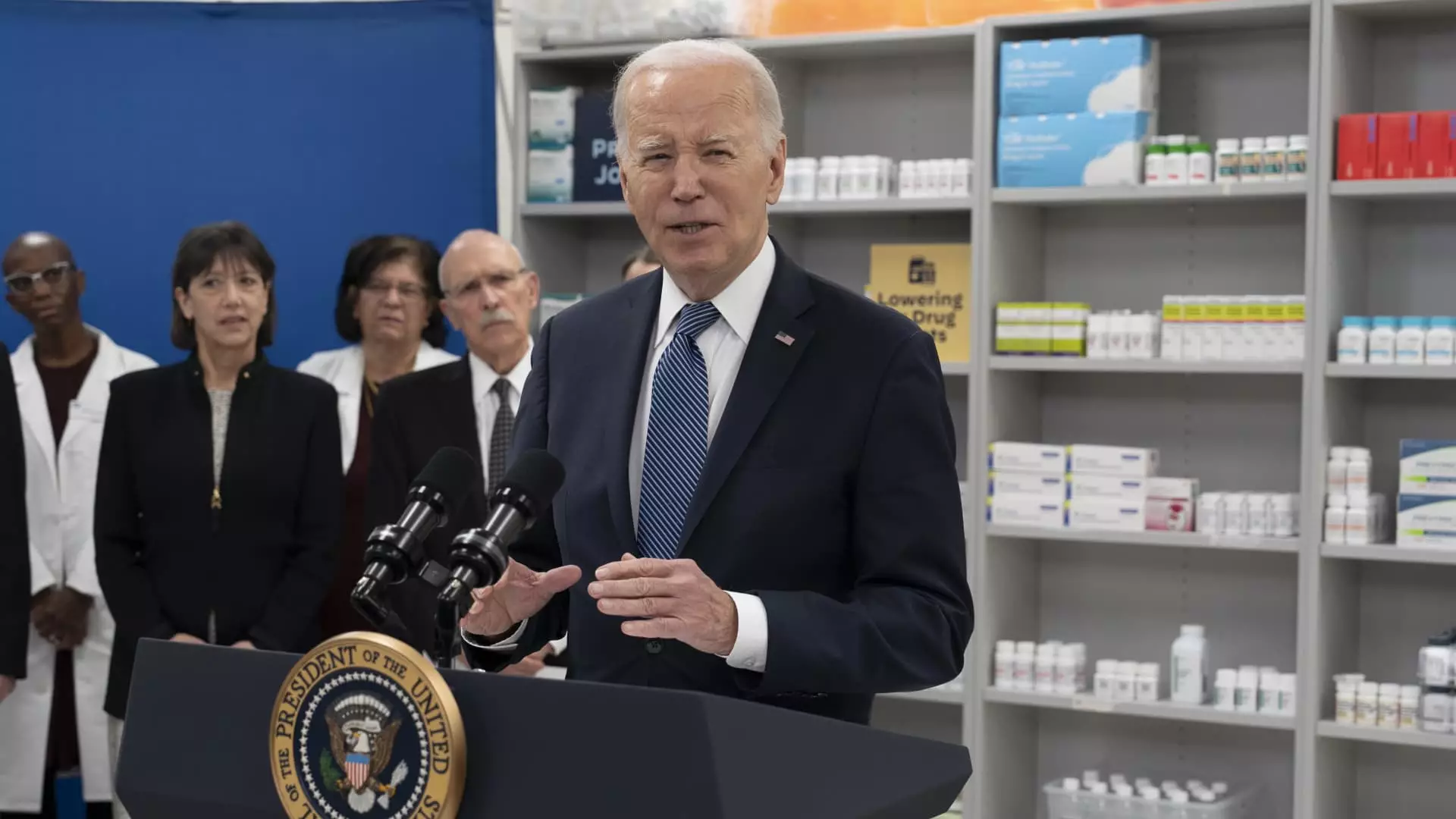The Biden administration recently announced its plan to implement inflation penalties on 64 prescription drugs for the third quarter of this year, aimed at reducing costs for older Americans enrolled in Medicare. This move is part of President Joe Biden’s broader agenda to lower U.S. drug prices, particularly for Medicare beneficiaries over the age of 65. While these efforts appear to be a step in the right direction, there are certain aspects of the administration’s approach that warrant further scrutiny.
One of the key provisions of Biden’s Inflation Reduction Act requires drugmakers to pay rebates to Medicare if they raise the prices of medications faster than the rate of inflation. While this may help in curbing excessive price hikes, it is crucial to note that this is only one piece of the puzzle. The ability of Medicare to negotiate lower drug prices directly with manufacturers is another important tool that could potentially achieve better outcomes for patients. By focusing solely on inflation penalties, the administration may be missing an opportunity to address the root causes of high drug costs.
According to the Biden administration, the inflation penalties will result in lower coinsurance rates for certain Medicare Part B patients using the 64 drugs covered in the announcement. This could lead to substantial savings for individuals facing high out-of-pocket costs for prescription medications. However, it is important to consider the broader implications of these penalties on overall drug pricing dynamics. Will manufacturers simply offset the rebates by increasing prices for other drugs, thus undermining the intended benefits for patients?
The list of drugs subject to inflation penalties includes treatments for conditions such as cancer, infections, and osteoporosis. While this demonstrates a commitment to addressing a wide range of health issues, it is essential to ensure that all Medicare beneficiaries have access to affordable medications for their specific conditions. Furthermore, the focus on certain high-cost drugs raises questions about the broader affordability of prescription medications across the entire Medicare population.
Looking ahead, the Centers for Medicare & Medicaid Services plan to start invoicing drugmakers for rebates owed to the program in 2025. This timeline raises concerns about the delay in implementing concrete measures to address rising drug prices. With the upcoming reelection campaign in 2024, it remains to be seen whether the Biden administration’s efforts to reduce drug costs will have a lasting impact on Medicare beneficiaries.
While the Biden administration’s inflation penalties on prescription drugs represent a step in the right direction, there are still significant challenges that need to be addressed in order to achieve meaningful and sustainable reductions in drug prices for older Americans. It is crucial for policymakers to take a comprehensive and nuanced approach to tackling the root causes of high drug costs to ensure that all Medicare beneficiaries have access to affordable medications.

